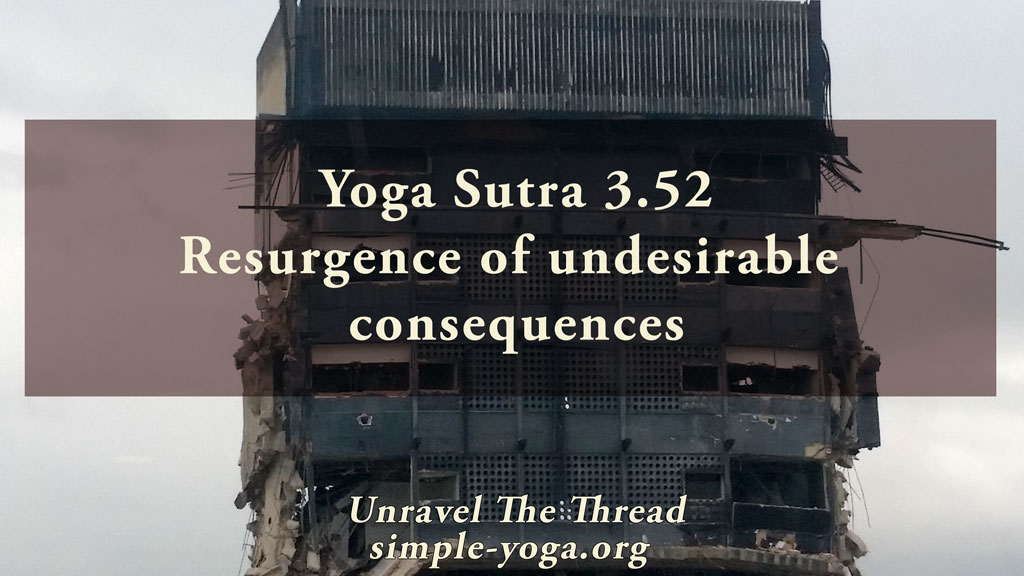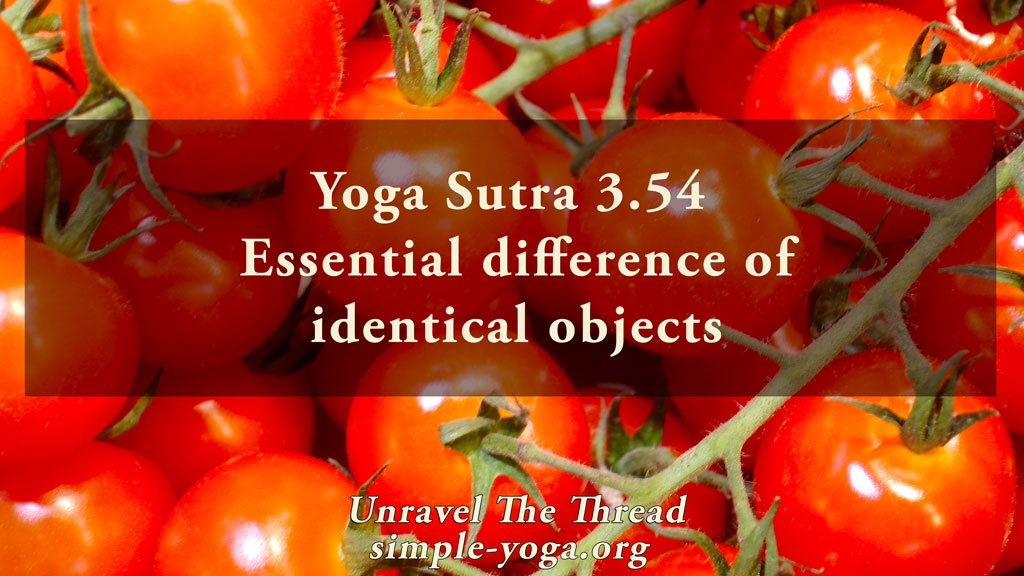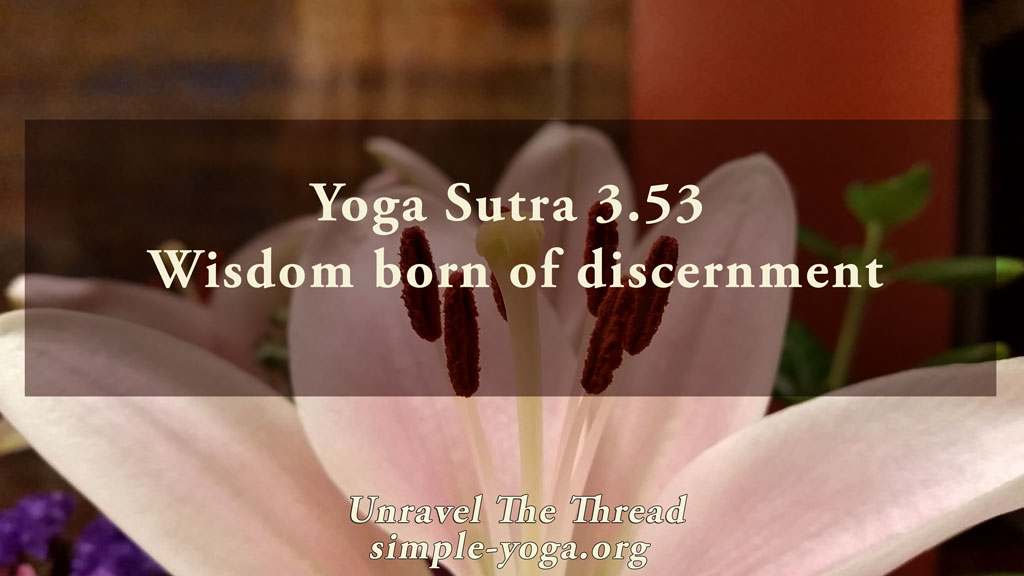
3.52 Resurgence of undesirable consequences
April 29, 2022
3.54 Essential difference of identical objects
May 11, 2022
3.52 Resurgence of undesirable consequences
April 29, 2022
3.54 Essential difference of identical objects
May 11, 20223.53 Wisdom born of discernment

3.53 Meditative integration (samyama) on single moments and their sequence, results in wisdom born of discernment.
A moment is the smallest instant in which change can occur. Change is happening everywhere. Life is a continuous sequence of changes occurring simultaneously. As change takes place, a moment almost imperceptibly turns into another moment. However, changes only happen in the present moment. In the ancient commentary by Vyasa, he explains that time is a mental construct. Yesterday and tomorrow seem real in our minds, yet we have never been in yesterday or tomorrow. We can’t go to either. We can only go to recollections in our mind to try to go back in time. Or, to think about the future, we have to speculate about what might happen. Time is a useful tool for practical purposes, such as choosing when to meet a friend for lunch. However, when you see time as something real, time can become a commodity, something that can be saved or wasted. Like with any other construct or tool, we can see time as helpful or unhelpful. Is the expectation that there is a tomorrow waiting for you an excuse to postpone your wholehearted participation in your life? Or is the uncertainty about tomorrow a powerful motivation to engage meaningfully in your activities? This sutra is a reminder to the call to action from sutra 1.1, the task of the yogi is to be present. If change happens only in the present moment, your actions can take place only in the present moment. When you go beyond seeing time as something real, what happens? This aphorism says that meditative integration on moments and their succession, establishes wisdom out of discernment.
Can your meditation on the sequence of unique moments clarify the difference between the aspect of you that is changing constantly and the part that seems to be timeless?
For instance, in a comfortable position close your eyes and invite yourself to relax. Take some time to let everything, your body, breath, mind, and emotions settle. Focus on feeling the complete experience of being without adding any commentary.
Can you feel a timeless aspect of you?
Whatever the experience, it cannot be put into words accurately, but you may be able to feel it.
Can you stay with that and be curious about what happens when you focus fully on each moment and the changes that are taking place?
Can this practice offer you a useful vantage point for living your life?
As usual, one more way of exploring the meaning of this sutra is by chanting it.
You can choose to chant it in its traditional form with some of the words coming together:
3.53 kṣaṇatatkramayoḥ saṃyamāt vivekajaṃjñānam
क्षणतत्क्रमयोः संयमात् विवेकजंज्ञानम् ॥५३॥
Another option is to chant each word in the sutra individually:
- kṣaṇa
- tat
- kramayoḥ
- saṃyamāt
- vivekajaṃ
- jñānam
If you prefer, you may listen to the podcast:
This is an excerpt from the book Unravel the thread: Applying the ancient wisdom of yoga to live a happy life
If you find Simple-Yoga.org and Unravel the thread useful, consider supporting my labor with a donation, you may also donate using PayPal or Venmo. Thank you!
